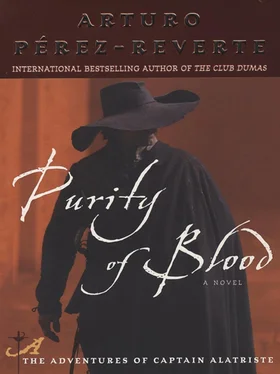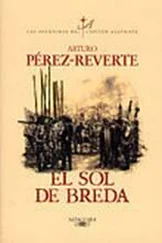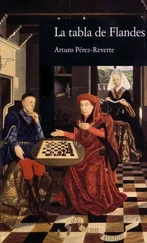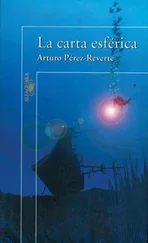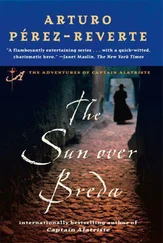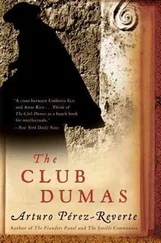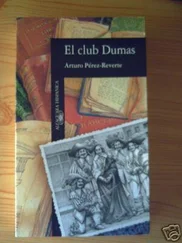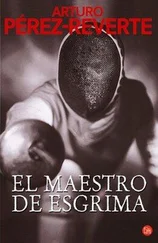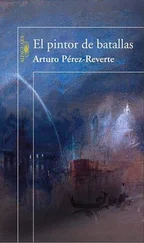Arturo Pérez-Reverte - Purity of Blood
Здесь есть возможность читать онлайн «Arturo Pérez-Reverte - Purity of Blood» весь текст электронной книги совершенно бесплатно (целиком полную версию без сокращений). В некоторых случаях можно слушать аудио, скачать через торрент в формате fb2 и присутствует краткое содержание. Жанр: Старинная литература, на английском языке. Описание произведения, (предисловие) а так же отзывы посетителей доступны на портале библиотеки ЛибКат.
- Название:Purity of Blood
- Автор:
- Жанр:
- Год:неизвестен
- ISBN:нет данных
- Рейтинг книги:3 / 5. Голосов: 1
-
Избранное:Добавить в избранное
- Отзывы:
-
Ваша оценка:
- 60
- 1
- 2
- 3
- 4
- 5
Purity of Blood: краткое содержание, описание и аннотация
Предлагаем к чтению аннотацию, описание, краткое содержание или предисловие (зависит от того, что написал сам автор книги «Purity of Blood»). Если вы не нашли необходимую информацию о книге — напишите в комментариях, мы постараемся отыскать её.
Purity of Blood — читать онлайн бесплатно полную книгу (весь текст) целиком
Ниже представлен текст книги, разбитый по страницам. Система сохранения места последней прочитанной страницы, позволяет с удобством читать онлайн бесплатно книгу «Purity of Blood», без необходимости каждый раз заново искать на чём Вы остановились. Поставьте закладку, и сможете в любой момент перейти на страницу, на которой закончили чтение.
Интервал:
Закладка:
I did not examine these details too closely, though, for I was far from lucid, so addled that I did not recognize myself in the Íñigo who took the beatings or who waked with a shudder in the darkness of a dank cell, listening to a rat scamper back and forth across the floor. My one true anxiety was that I would rot in that cell until I was fourteen, at which time I would make close acquaintance of the rope and wood contrivance still standing in the interrogation room, as if signaling that sooner or later I would be its prey.
In the meantime, I chased the rat. I was tired of going to sleep dreading its bites, and I devoted many hours to studying the situation. I ended up knowing its habits better than my own: its chariness—it was an old veteran rat—its audacity, the way it moved inside the walls. I learned to follow its scamperings, even in the dark. One night, pretending to be asleep, I let it follow its usual routine until I knew it was in the corner where I had set out bread crumbs every day, enticing it to that spot. I grabbed the water jug and slammed it down, with such good fortune that it turned up its paws and died, without squeaking an “Ay!” or whatever the devil rats say when they get what is coming to them.
That night, finally, I could sleep peacefully. But the next morning I began to miss my cellmate. Its absence left me time to reflect on other things, such as Angélica’s treachery and the stake where I could, and almost certainly would, end my brief life.
As for their burning me to a crisp, I can say, without braggadocio, that I spent no time at all worrying about that. I was so exhausted by the prison and the torture that any change would seem like a liberation. I often busied myself in calculating how long it would take to burn to death. Then again, if one recants in the proper form, they will use the garrote before lighting the pyre, and the end will come more gently. Whatever they did, I consoled myself, no suffering is eternal; and ultimately there is peace. Furthermore, in those days dying was a common occurrence, easily accomplished. I had not committed sins enough to weigh down my soul to the point of preventing my rejoining, in whatever place, that good soldier Lope Balboa. At my age, and having a certain heroic concept of life—do not forget that I was in these straits because I had not informed on the captain or his friends—the situation was made bearable by considering it a test in which, again begging your pardon, I found I was quite pleased with my performance. I do not know if in truth I truly was a lad with natural courage; but the Lord God above knows that if the first step toward courage consists of comporting oneself as if one were indeed courageous, I—let the record show—had taken not a few of those steps.
Nevertheless, I was hopelessly melancholy, filled with a deep anguish—something akin to wanting to cry but which had nothing to do with the tears of pain or physical weakness that were sometimes spilled. It was instead a cold, sorrowful sadness related to the memory of my mother and my little sisters, the captain’s look when he silently approved of something I had done, the soft green hillsides around Oñate, my childhood games with boys who had lived nearby. I regretted that I had to bid farewell to all that forever, and I mourned all the beautiful things that had awaited me in life, and that now I would never have. And especially, more than anything, I was sad not to look for one last time into the eyes of Angélica de Alquézar.
I swear to Your Mercies that I could not hate her. Just the opposite, knowing that she had played a part in my misfortune left a bittersweet taste that heightened the sorcery of her memory. She was wicked—and she became more so with time, I swear in Christ’s name—but she was breathtakingly beautiful. And it was precisely the combination of evil and beauty, so tightly entwined, that fascinated me, an agonizing pleasure as I suffered every torment because of her. By my faith, one would think I was enchanted. Later, as the years went by, I heard stories of men whose souls had been stolen by a wily Devil, and in each of them I recognized my own rapture. Angélica de Alquézar held my soul in thrall, and she kept it as long as she lived.
And I, who would have killed for her a thousand times, and died for her another thousand without blinking an eye, will never forget her incomparable smile, her cold blue eyes, her snowy white skin, so soft and smooth, the touch still on my own skin, now covered with ancient scars, some of which, pardiez, she herself gave me. Like the one on my back, a long scar from a dagger, as indelible as that night, long after the time I am writing about here, when we were no longer children, and I held her in my arms, both loving and hating her, not caring whether I would be dead or alive at dawn. When she, so close to me, whispering through lips red from kissing my wound, spoke the words I shall never forget, in this life or in the next: “I am happy I have not killed you yet.”
Frightened, prudent, or perhaps astute, if not all of those things, Luis de Alquézar was a patient crow, and he had the cards to play the game by his rules. So he was careful not to give the advantage to anyone. Diego Alatriste’s name was not broadcast anywhere, and he spent the day, like all the previous ones, out of sight in the room in Juan Vicuña’s gaming house. But during that period, the captain’s nights were more active than his days, and in the dark of the next one, he made another visit to an old acquaintance.
The chief constable, Martín Saldaña, found him at the doorway of his house on Calle León when he returned from his last rounds. Or, to be more exact, what he encountered was the light glancing off Alatriste’s pistol, which was aimed straight at him. But Saldaña was an even-tempered man who had, in the course of his life, seen more than his share of pistols, harquebuses, and every other kind of weapon pointed at him. This one made him neither hotter nor colder than usual. He propped his fists on his hips and stared at Diego Alatriste who, in cape and hat, was holding his pistol in his right hand and, to be safe, resting the left on the handle of the dagger stowed in his belt above his left kidney.
“’Pon ’is body, Diego, you like to tempt fate.”
Alatriste did not respond. He stepped a little out of the shadow to search Saldaña’s face by the faint light from the street—just a large candle burning at the corner of Calle de las Huertas. Then the captain turned up the barrel of the pistol, as if intending to show the weapon to his friend.
“Do I need this?”
Saldaña observed him an instant. “No,” he said finally. “Not this minute.”
That broke the tension. The captain stuffed the pistol back into his belt and dropped his hand from the dagger.
“We are going to take a little walk,” he said.
“What I cannot understand,” said Alatriste, “is why they are not openly looking for me.”
They were walking across Antón Martín plaza toward Calle Atocha, deserted at that hour. There was still a waning moon in the sky, which had just emerged from behind the chapel of the Amor de Dios Hospital, and its beams rippled on the water falling from the curbstone of a fountain and running in rivulets down the street. There was asmell of rotted vegetables in the air, and the pungent odor of mule and horse manure.
“I don’t know, and I do not want to know,” said Saldaña. “But it is true that no one has given your name to the authorities.”
He stepped to one side to avoid some mud, but put his foot where he least wanted and choked back a curse behind his graying beard. His short cape accentuated his stocky build and broad shoulders.
“Whatever the case,” he continued, “be very careful. The fact that my catchpoles are not on your trail does not mean that no one is interested in the state of your health. According to my information, the familiares of the Inquisition have orders to bring you in with maximum discretion.”
Читать дальшеИнтервал:
Закладка:
Похожие книги на «Purity of Blood»
Представляем Вашему вниманию похожие книги на «Purity of Blood» списком для выбора. Мы отобрали схожую по названию и смыслу литературу в надежде предоставить читателям больше вариантов отыскать новые, интересные, ещё непрочитанные произведения.
Обсуждение, отзывы о книге «Purity of Blood» и просто собственные мнения читателей. Оставьте ваши комментарии, напишите, что Вы думаете о произведении, его смысле или главных героях. Укажите что конкретно понравилось, а что нет, и почему Вы так считаете.
